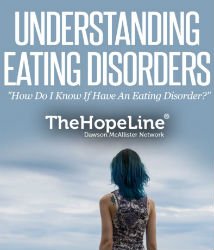Breaking Stigma: Language’s Impact on Eating Disorder Help
In New Zealand, the conversation surrounding eating disorders and their treatment is increasingly recognizing the importance of gender diversity. Addressing stigma through inclusive language and representation is crucial in fostering an environment where individuals from gender diverse populations feel empowered to seek help. Research indicates that traditional narratives around eating disorders often overlook the unique experiences of these individuals, which can deter them from accessing necessary support.
Gender-inclusive eating support plays a pivotal role in transforming perceptions and ensuring that all voices are heard. By prioritizing inclusive communication and representation in treatment settings, we can significantly improve help-seeking behaviors among gender diverse individuals. To learn more about the nuances of eating disorders in the New Zealand context, visit this resource, which highlights the importance of tailored approaches in addressing these critical issues.
The Importance of Language in Addressing Eating Disorders
Language plays a crucial role in shaping perceptions and attitudes toward eating disorders, particularly in gender diverse populations. The terminology used to describe these conditions can either foster an inclusive environment or perpetuate stigma. For instance, using gender-neutral language when discussing eating disorders can help individuals from all backgrounds feel represented and understood. By avoiding terms that are heavily gendered, healthcare providers and advocates can create a more welcoming space for those seeking help.
In New Zealand, societal attitudes toward gender diversity are evolving, yet stigma around eating disorders remains prevalent. Many individuals may hesitate to seek help if they feel that the language used in treatment settings does not reflect their identity. For example, using terms like “individual” or “person” instead of “girl” or “boy” can be more inclusive, encouraging broader participation in support services. This approach not only validates diverse identities but also acknowledges the unique experiences of those with eating disorders.
To promote gender-inclusive eating support, it’s beneficial for organizations and practitioners to adopt language that resonates with all individuals, regardless of their gender identity. This can include training sessions that help professionals understand the importance of language in their practice. By fostering an environment where language is carefully considered, we can break down barriers to help-seeking behaviors and encourage individuals to reach out for support.
For additional resources on how language impacts eating disorders, visit Eating Disorders New Zealand.
The Role of Representation in Media and Society
Representation in media significantly influences societal perceptions of eating disorders and gender diversity. When media portrayals are limited or stereotypical, they can contribute to misconceptions that discourage help-seeking behaviors among gender diverse individuals. Unfortunately, many mainstream representations focus on cisgender experiences, sidelining those who do not conform to traditional gender norms.
In New Zealand, it is essential to advocate for media that reflects the realities of gender diverse populations experiencing eating disorders. This can include showcasing diverse narratives in documentaries, films, and advertisements that highlight the struggles and triumphs of individuals from various backgrounds. Such representation can demystify eating disorders and show that they can affect anyone, regardless of gender identity.
Moreover, media literacy programs in schools and communities can help individuals critically engage with the depictions of eating disorders they encounter. By fostering discussions about how media shapes perceptions, we can empower gender diverse individuals to see their experiences validated and understood. This can ultimately lead to increased willingness to seek help and support.
For more insights on representation and its impact, check out resources available at Eating Disorders New Zealand.
Creating Inclusive Support Services
The provision of support services for eating disorders must prioritize inclusivity, particularly for gender diverse populations. Many traditional support frameworks may not address the unique needs of these individuals, resulting in a gap that can deter help-seeking behaviors. To combat this, it is essential to develop gender-inclusive eating support programs that acknowledge and cater to diverse identities.
In New Zealand, organizations can implement training for staff to ensure they are equipped to provide affirming care. This can include understanding the specific challenges faced by gender diverse individuals, such as societal pressures and discrimination, which may exacerbate their eating disorders. Additionally, creating support groups that focus on shared experiences among gender diverse individuals can foster a sense of community and belonging.
Moreover, feedback mechanisms should be established to continuously improve these services. By actively seeking input from those who utilize support services, organizations can better understand the barriers they face and adapt their approaches accordingly. This iterative process ensures that the support remains relevant and effective.
For further information on establishing inclusive support services, refer to Eating Disorders New Zealand.
The Impact of Community and Peer Support
Community and peer support play a vital role in encouraging help-seeking behaviors for eating disorders. When individuals see others who share similar experiences and identities, it can reduce feelings of isolation and stigma. In New Zealand, building supportive communities for gender diverse individuals can create safe spaces where they can express themselves without fear of judgment.
Peer-led support groups can be particularly effective, as they provide a platform for sharing personal stories and strategies for coping with eating disorders. These groups can foster a sense of solidarity and understanding among participants, emphasizing that they are not alone in their struggles. Moreover, the normalization of discussing mental health and body image issues within these communities can encourage individuals to seek professional help when needed.
Collaboration with local organizations that specialize in mental health and gender diversity can enhance the effectiveness of these support initiatives. By pooling resources and expertise, communities can create comprehensive networks that not only address eating disorders but also promote overall well-being.
For more information on community support options, visit Eating Disorders New Zealand.
Education and Awareness Initiatives
Education and awareness initiatives are essential for addressing stigma and fostering an understanding of eating disorders among gender diverse populations. In New Zealand, schools, universities, and community organizations can play a pivotal role in spreading awareness about the complexities of eating disorders and the importance of gender-inclusive support.
Workshops and seminars that focus on mental health, body image, and eating disorders can be instrumental in educating both peers and educators. By incorporating topics related to gender diversity, these initiatives can help dispel myths and misconceptions surrounding eating disorders, ultimately creating a more supportive environment for those in need.
Moreover, integrating discussions about eating disorders into health education curricula can empower young people to recognize the signs and seek help for themselves or their peers. This proactive approach can significantly reduce stigma and encourage open conversations about mental health, making it easier for gender diverse individuals to seek support when necessary.
To learn more about educational resources, check out Eating Disorders New Zealand.
Policy Changes and Advocacy Efforts
Advocating for policy changes that address the needs of gender diverse populations dealing with eating disorders is crucial for fostering an inclusive health care environment. In New Zealand, policymakers can play a significant role in ensuring that mental health services are accessible and responsive to the unique challenges faced by these communities.
This can include advocating for funding for specialized training programs for healthcare providers, ensuring they understand the importance of gender-inclusive practices. Additionally, policies that mandate the collection of data on the experiences of gender diverse individuals in relation to eating disorders can help identify gaps in services and inform future initiatives.
Moreover, engaging in advocacy efforts that promote mental health awareness at the governmental level can lead to broader societal changes. By pushing for comprehensive mental health policies that prioritize inclusivity, advocates can help create a framework that supports all individuals, regardless of their gender identity.
For more information on advocacy and policy changes, visit Eating Disorders New Zealand.
Conclusion: Moving Towards a More Inclusive Future
Addressing stigma surrounding eating disorders in gender diverse populations requires a multifaceted approach that encompasses language, representation, support services, community engagement, education, and policy advocacy. By recognizing the unique challenges these individuals face and implementing gender-inclusive eating support, we can foster an environment that encourages help-seeking behaviors.
In New Zealand, the journey toward inclusivity is ongoing. However, by working together—healthcare providers, educators, community organizations, and advocates—we can create a landscape that supports all individuals in their battles with eating disorders. Emphasizing the importance of language, representation, and community can lead to profound changes in the way eating disorders are perceived and treated, ultimately paving the way for a more inclusive future.
For further resources and support, please visit Eating Disorders New Zealand.
FAQs
What is the relationship between stigma and help-seeking behaviors for eating disorders?
Stigma surrounding eating disorders can significantly hinder individuals from seeking help. When people feel judged or misunderstood due to societal perceptions, they may avoid reaching out for support, exacerbating their condition. Addressing stigma through inclusive language and representation can create a safer space for individuals to seek help.
How does language impact the perception of eating disorders in gender diverse populations?
Language plays a crucial role in shaping how eating disorders are perceived. Using gender-inclusive language acknowledges the experiences of all individuals, regardless of gender identity. This approach helps to validate their struggles and encourages them to seek support without fear of being marginalized or misrepresented.
Why is representation important in discussions about eating disorders?
Representation is vital because it ensures that the experiences of gender diverse individuals are visible and acknowledged. When media and support resources include diverse voices, it fosters a sense of belonging and encourages individuals to engage in help-seeking behaviors, knowing that their experiences are recognized and valued.
What are some examples of gender-inclusive eating support?
Gender-inclusive eating support can include resources that use gender-neutral language, programs that are designed to accommodate diverse identities, and support groups that welcome individuals of all genders. It’s essential for these programs to create an environment where everyone feels safe and accepted, promoting open dialogue and understanding.
How can healthcare professionals address stigma in their practice?
Healthcare professionals can address stigma by using inclusive language, actively listening to their patients, and educating themselves about the unique challenges faced by gender diverse populations. Creating a supportive atmosphere where individuals feel comfortable discussing their eating disorders is crucial for effective treatment and recovery.
What role does community support play in helping individuals with eating disorders?
Community support is instrumental in helping individuals with eating disorders. A supportive community can provide a sense of belonging and understanding, which reduces feelings of isolation. Gender-inclusive eating support networks can foster connections among individuals, encouraging them to seek help and share their experiences in a safe environment.
How can we promote more inclusive language in discussions about eating disorders?
Promoting inclusive language involves using terms that respect and acknowledge all gender identities. Educating individuals and organizations about the importance of such language in discussions about eating disorders can help create a more welcoming atmosphere. Workshops, training sessions, and informative materials can facilitate this shift towards greater inclusivity in conversations and resources.
References
- Eating Disorders Association of New Zealand – A comprehensive resource providing information on eating disorders, including support services and awareness initiatives specifically addressing the needs of diverse populations.
- National Eating Disorders Association (NEDA) – A leading nonprofit organization dedicated to providing support and resources for individuals affected by eating disorders, with a focus on promoting understanding and reducing stigma.
- Eating Disorder Hope – An organization that offers resources, treatment options, and information on eating disorders, emphasizing the importance of inclusive language and representation in mental health.
- The Eating Disorders Clinic – A clinical resource that provides insights into the treatment of eating disorders and the impact of stigma and language on help-seeking behaviors among gender diverse individuals.
- OUT FRONT Minnesota – An organization focused on LGBTQ+ issues, including mental health and eating disorders, advocating for inclusive representation and the reduction of stigma within healthcare environments.









Recent Comments